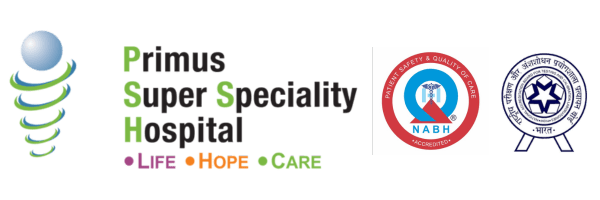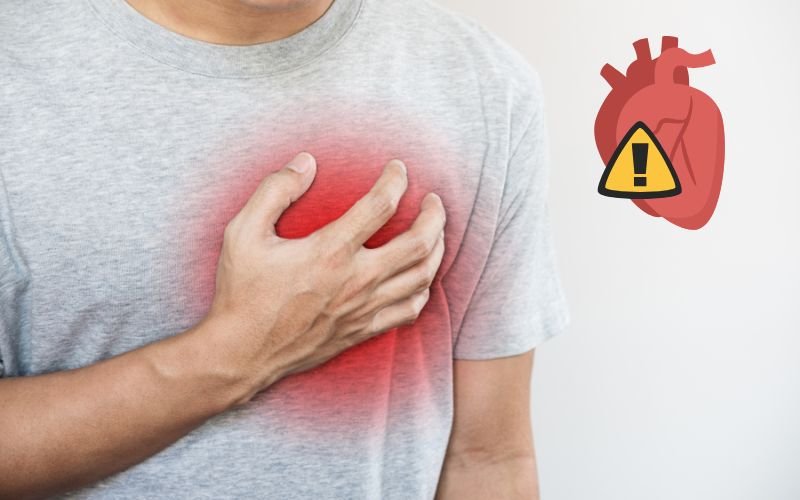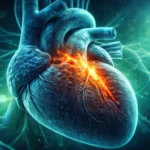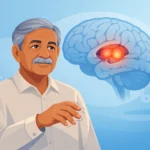Every part of the body receives blood supply through continuous operation of the heart. Cardiomyopathy starts when the heart muscles begin to weaken or become stiff thus causing improper functionality. This medical condition results in decreased blood efficiency due to its effects on heart muscle operation. Cardiac failure alongside arrhythmias and sudden cardiac arrest becomes a possible medical consequence when you don’t treat this condition.
Multiple forms of cardiomyopathy exist their causes differ, and so do their symptoms and therapeutic approaches. The condition can be genetic or it develops due to blood pressure, infections, or lifestyle. Early detection through ECG (electrocardiogram) findings is key to preventing complications.
The article discusses different cardiomyopathy types along with their symptoms, what you may see on an ECG, and the best cardiology treatment in Delhi available.
What Is Cardiomyopathy?
Cardiomyopathy is a medical condition which affects heart muscle tissues. Cardiomyopathy affects the heart muscle making it weak, thick, or stiff, and diminishes its ability to supply blood throughout the body. Genetics and extended high blood pressure along with previous heart attacks serve as the primary causes of this condition.
Types of Cardiomyopathy
There are several types of cardiomyopathy. Understanding the differences is key to proper management.
Ischemic Cardiomyopathy
The reduced flow of blood to the heart muscle leading to Ischemic cardiomyopathy normally appears because of coronary artery disease. The heart muscle weakness develops when it lacks sufficient oxygen supply. The heart condition mostly develops in those who experience heart attacks and people with consistent hypertension.
Dilated Cardiomyopathy
Patients with dilated cardiomyopathy develop an enlarged and weakened left ventricle which is the principal chamber for heart pumping. Heart failure and poor blood flow is a possible consequence of this condition. The symptoms of dilated heart muscle weakening include fatigue, leg swelling, and breathing problems.
Hypertrophic Cardiomyopathy
Hypertrophic cardiomyopathy is due to an abnormal thickening of the heart muscle. Especially the walls of the left ventricle. This thickening can obstruct blood flow and cause symptoms such as chest pain, shortness of breath, and fainting, particularly during physical activity.
Arrhythmogenic Cardiomyopathy
Arrhythmogenic cardiomyopathy represents a health condition where heart muscle cells transform into fatty tissue or fibrous material. Heart rhythm disturbances called arrhythmias become dangerous when such tissue replacements occur because they increase the risk of sudden cardiac events.
Post Partum Cardiomyopathy
Post partum cardiomyopathy is a rare form of heart problem that develops in women during the last month of pregnancy or in the months following delivery. The exact cause is not known, but it leads to a weakening of the heart muscle, causing symptoms similar to heart failure.
Symptoms of Cardiomyopathy
Cardiomyopathy can present a variety of symptoms, depending on its type and severity. Some common symptoms include:
- Shortness of Breath
- Fatigue
- Swelling
- Chest Pain
- Palpitations
- Dizziness or Fainting
These symptoms often worsen over time. If you notice these signs, it is important to consult a heart doctor in Delhi.
ECG Findings in Cardiomyopathy
The diagnosis heavily relies on the use of Electrocardiograms (ECGs). ECGs show heart electrical conductivity problems which help doctors identify certain problem types.
Key ECG Findings
- Dilated Cardiomyopathy ECG: Shows signs such as low voltage QRS complexes, abnormal T-wave inversions, and sometimes, arrhythmias.
- Hypertrophic Cardiomyopathy ECG: May display left ventricular hypertrophy, deep Q waves, and abnormal ST segments. These findings help in diagnosing its treatment needs.
- Arrhythmogenic Cardiomyopathy ECG: Often shows ventricular arrhythmias that can be life-threatening. Continuous monitoring is required for patients with this condition.
- Post Partum Cardiomyopathy ECG: This may resemble that of the dilated type with signs of reduced cardiac output.
Understanding these ECG findings helps cardiologists offer the best heart treatment for each patient’s specific condition.
Treatment Options for Cardiomyopathy in Delhi
A rapid and complete treatment method must be used for adequate heart muscle management. Medical plans emerge from identifying the condition type alongside its development stage and patient health condition.
Medicines
Various medicines are used to manage symptoms and improve heart function:
- ACE Inhibitors and ARBs: Help lower blood pressure and reduce the workload on the heart.
- Beta-Blockers: Slow the heart rate and decrease blood pressure, improving heart efficiency.
- Diuretics: Aid in reducing fluid buildup in cases of heart failure.
- Antiarrhythmic Medications: Used to manage irregular heartbeats, especially in arrhythmogenic heart rates.
For its treatment, medications play a central role in alleviating symptoms and improving quality of life.
Surgical and Interventional Cardiology Surgery Procedures
In cases where medication is insufficient, surgical interventions may be necessary:
- Implantable Cardioverter-Defibrillators (ICDs): To prevent sudden cardiac death in patients with dangerous arrhythmias.
- Septal Myectomy: Surgical removal of the thickened heart muscle in hypertrophic cardiomyopathy.
- Heart Transplant: Considered in end-stage cases where the heart can no longer function effectively.
For many patients, especially those with advanced disease, consulting the best heart doctor in Delhi for related complications might also be required, especially when there is associated muscle weakness or nerve issues.
Lifestyle Modifications and Rehabilitation
The long-term management of cardiomyopathy requires people to make several changes to their lifestyles:
- Diet: People with this cardiology condition should follow a diet plan low in salt and cholesterol control to minimize heart strain.
- Exercise: Regular physical activity improves heart function and stamina.
- Stress Management: Meditation and yoga practices decrease heart strain and help with stress management.
- Regular Monitoring: Frequent checkups are crucial since they allow needed treatment changes and disease progression tracking.
Patients should work closely with their doctor to create a personalized plan that fits their lifestyle and medical needs.
Conclusion
The heart condition cardiomyopathy creates severe complications which impair its operational capabilities. Proper treatment, early diagnosis, and a proactive lifestyle help people with heart problems to manage their symptoms better and live a productive life.
You can get medical help from experts who support people with heart issues and guide them toward treatment. If you are seeking specialized care, choose a trusted hospital like Primus Super Specialty Hospital in Delhi to get advanced care for your condition. Take charge of your health today and explore comprehensive treatment plans.













